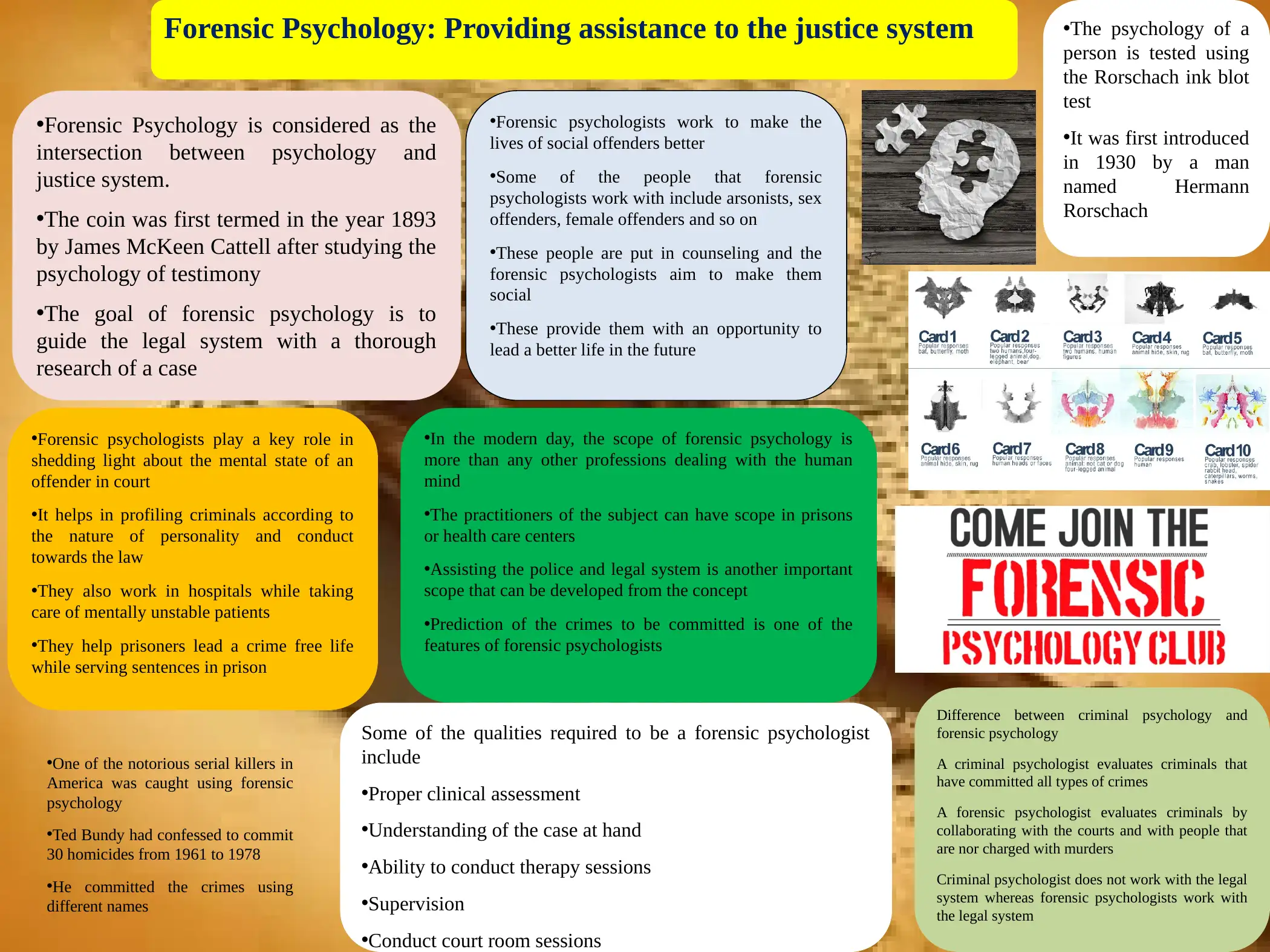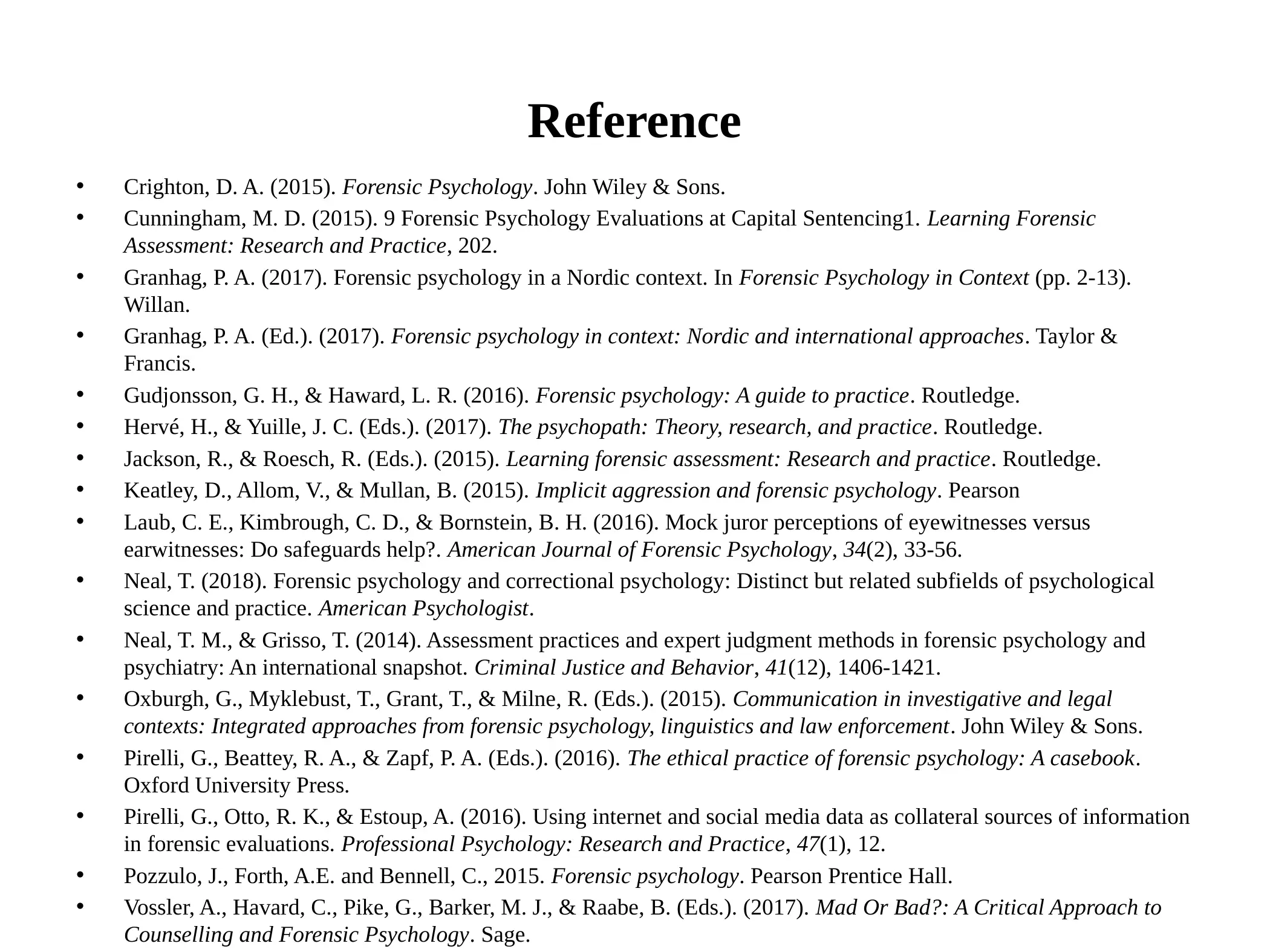Forensic Psychology: An In-depth Look at Justice System Assistance
VerifiedAdded on 2023/06/13
|2
|920
|76
Report
AI Summary
This report provides an overview of forensic psychology, highlighting its role in assisting the justice system through criminal profiling, understanding offender behavior, and contributing to rehabilitation efforts. It discusses the historical context of forensic psychology, its application in modern criminal investigations, and its significance in assessing the mental state of offenders. The report also differentiates forensic psychology from criminal psychology, emphasizing the former's direct involvement with the legal system and its use in court proceedings. Furthermore, it touches upon the qualities needed to be a forensic psychologist and the various settings in which they operate, including prisons, healthcare centers, and courtrooms. The report concludes by referencing several academic sources, underscoring the subject's reliance on research and established practices.
1 out of 2







![[object Object]](/_next/static/media/star-bottom.7253800d.svg)